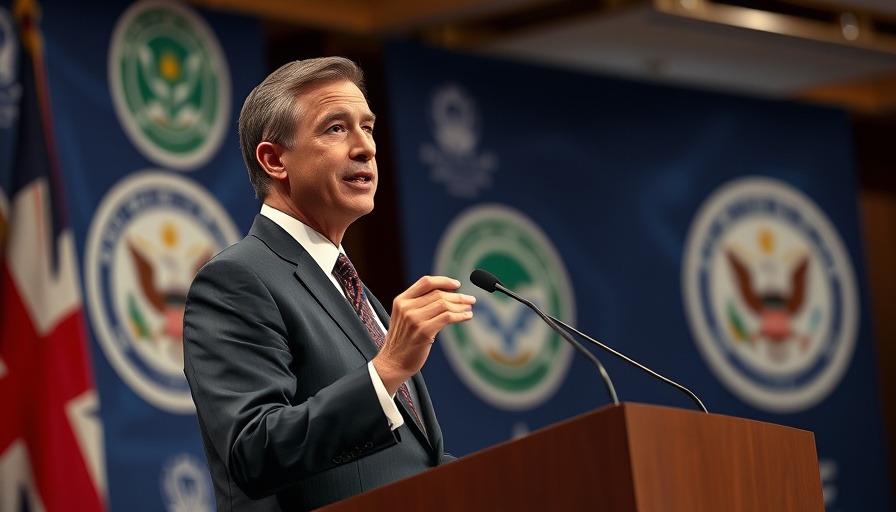
Understanding the Urgency for Local Government Reform
As South Africa prepares to modernize its approach to local governance, the call from Cooperative Governance Minister Velenkosini Hlabisa for public comments on the review of the 1998 White Paper highlights pressing issues that have remained at the forefront of municipal administration. The deadline for feedback, set against the backdrop of a multitude of challenges, underscores the importance of public engagement in shaping the policies that govern local municipalities.
Current Challenges Facing Municipalities
One of the main reasons behind this critical review is the alarming number of municipalities that struggle with revenue collection, leading some into disastrous financial states. Minister Hlabisa emphasized that the inadequate revenue base not only jeopardizes service delivery but also threatens to collapse entire municipal systems. Local government expert Sabelo Chalufu further described the intersection of politics and administration as a deeply dysfunctional one, where councilors often overstep by attempting to take on administrative roles. This well-documented phenomenon leads to inefficiency and service delivery failures, pressing the need for a clearer framework governing roles and accountability.
The Role of Public Participation in Governance
The call for public comments invites active citizen participation in governance. Engaging the populace in discussions regarding key governance policies is a step towards rectifying the historical disconnect between municipalities and residents. By taking their insights seriously, the government can identify practical solutions that are directly informed by the experiences and needs of citizens. Such engagement is particularly pertinent as South Africa approaches the 2024 general elections, where voter turnout can be influenced by perceived governance efficacy.
Historical Context of the 1998 White Paper
The original 1998 White Paper laid the foundational principles for local governance, reflecting South Africa's transition into a democracy post-apartheid. However, two decades later, it is clear that various socio-economic dynamics such as income inequality, youth unemployment, and deep-rooted corruption have evolved, thus necessitating a comprehensive review. The lack of adequate political will, coupled with inconsistent policy implementation, has often left municipalities paralyzed.
Impacts on Service Delivery and Community Trust
Failures in service delivery can erode community trust in local governments, aggravating issues related to social grants, education reform, and other essential services that influence daily life. Effective governance is integral not only for restoring faith within communities but also for empowering residents to actively participate in their local governments. Realigning the focus of municipalities from merely reactive to proactive helps in identifying areas needing urgent attention, thereby improving overall service quality.
The Future of Local Governance: A Call for Innovation
The modern challenges faced by municipalities hint at the need for innovative approaches to governance. The introduction of Smart Cities initiatives, for instance, could play a vital role in bridging gaps in service delivery and engaging citizens through digital platforms. This shift will likely require constitutional amendments and dedicated public sector reform geared toward reducing the bureaucratic red tape that has long stifled effective governance.
Conclusion: The Path Forward
As the review of the 1998 White Paper on Local Government draws closer to a conclusion, the responsibility now rests with the public to voice their opinions and experiences. An engaged citizenry can help catalyze necessary reforms and foster a political culture that values transparency, accountability, and effective service delivery. The implications of these reforms extend beyond local governance; they touch every aspect of South African society. In this regard, individuals must step forward to articulate their frustrations, suggestions, and aspirations for a better governance landscape.
 Add Row
Add Row  Add
Add 




Write A Comment